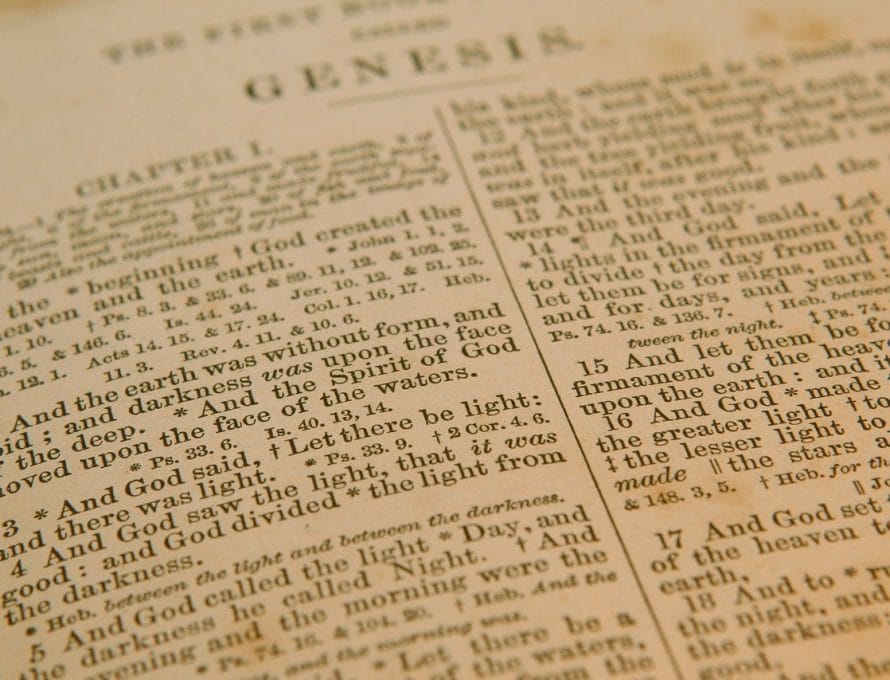This is the 18th in a series of articles on the Trinity, excerpted from “What Every Christian Should Know About the Trinity,” available through Amazon and other booksellers.
Prophetic portions of the Old Testament anticipate a coming Messiah. While explicit references to his deity are rare, key passages offer clues of the Anointed One’s eternal nature and divine power.
Isaiah 9:6-7 is one example: “For a child will be born for us, a son will be given to us, and the government will be on his shoulders. He will be named Wonderful Counselor, Mighty God, Eternal Father, Prince of Peace. The dominion will be vast, and its prosperity will never end. He will reign on the throne of David and over his kingdom, to establish and sustain it with justice and righteousness from now on and forever. The zeal of the LORD of Armies will accomplish this.”
Since the Israelites are strict monotheists, the very idea of “Mighty God, Eternal Father” coming to sit on King David’s throne and rule forever no doubt fuels great wonder and encouragement in God’s people. The name “Mighty God” means more than a godlike person, for the same Hebrew term, El Gibhor, is applied elsewhere in the Old Testament to Yahweh (Isa. 10:21; Jer. 32:18). Isaiah understands that the Messiah is God in the same sense of the term.
As for “Everlasting Father,” Isaiah does not mean to confuse the Father and the Messiah as if they are the same person. Rather, the prophet uses a Jewish idiom to describe the Messiah’s relationship to time, not His relationship with the other members of the Trinity. The Messiah is everlasting, just as God the Father is called the “Ancient of Days” in Daniel 7:9. It is similar to Micah’s messianic prophecy, which declares, “His origin is from antiquity, from ancient times” (Mic. 5:2).
Consider two additional passages:
Psalm 45:6-7 – “Your throne, God, is forever and ever; the scepter of your kingdom is a scepter of justice. You love righteousness and hate wickedness; therefore God, your God, has anointed you with the oil of joy more than your companions.”
This psalm celebrates the wedding of a king from the house of David. But not just any king. This psalm anticipates the Messiah, whom the psalmist calls “God” while distinguishing Him from “your God.” The writer of Hebrews applies this psalm to Jesus, whom God the Father addresses as “God” (Heb. 1:8-9).
Daniel 7:9, 13-14 – “As I kept watching, thrones were set in place, and the Ancient of Days took his seat. His clothing was white like snow, and the hair of his head like whitest wool. His throne was flaming fire; its wheels were blazing fire” (v. 9).
Four verses later, Daniel writes, “I continued watching in the night visions, and suddenly one like a son of man was coming with the clouds of heaven. He approached the Ancient of Days and was escorted before him. He was given dominion, and glory, and a kingdom; so that those of every people, nation, and language should serve him. His dominion is an everlasting dominion that will not pass away, and his kingdom is one that will not be destroyed” (vv. 13-14).
While some interpret “one like a son of man” as an angel (Michael), and others see him as a personification of the people of God (Israel), Jesus connects Himself to this passage. In fact, He refers to Himself as the Son of Man some 80 times in the Gospels. Early postbiblical Jewish writings also reflect the Messianic view.
Caiaphas, the high priest, asks Jesus, “Are you the Messiah, the Son of the Blessed One?” Jesus replies, “I am … and you will see the Son of Man seated at the right hand of Power and coming with the clouds of heaven” (Mark 14:61-62). The high priest tears his robes and says, “Why do we still need witnesses? You have heard the blasphemy” (vv. 63-64). This affirms Caiaphas’ understanding of the “son of man” in Daniel 7:13 as a divine person.
It’s important to note that Jesus’ self-understanding is steeped in Old Testament prophecies. For example, Jesus claims that God’s angels are His angels (Matt. 13:41; Luke 12:8-9) and that God’s kingdom is His kingdom (Matt. 19:23-24; John 18:36). He also makes it clear that all judgment is His (John 5:22).
No doubt, Jesus and the New Testament writers see the threads of Old Testament messianic prophecies in a fresh light, revealing a rich tapestry of the Messiah’s eternal existence, omnipotence, and sovereignty. What’s more, we may discover the pre-incarnate Christ in a most curious Old Testament figure known as the angel of the LORD.
Next: The Angel of the LORD

